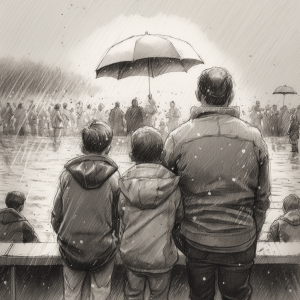Calling yourself a soccer coach is easy enough. Trying to coach soccer is a different story. Adding your personal touch to a training session is simple enough. Trying to enforce it without pulling your hair out is another story.
Do you have a coaching philosophy? Have you put pen to paper and actually developed your coaching philosophy? If you have, fantastic, great start. Are you upholding your coaching philosophy throughout the season?
For those of you that asked, “what’s a coaching philosophy?’ I’m glad you asked. A coaching philosophy reflects the standards you set for yourself and your team and it gives birth to your coaching values and belief. Before you decide to call yourself a soccer coach, make sure you’ve established your coaching philosophy.
Calling yourself a coach without a coaching philosophy is like driving a car without a license or embarking on a road trip without your trusty melways. The importance of a coaching philosophy is that it keeps you on track when things go wrong and helps keep the angry parents at a safe distance during the season.
But just a word of warning, even with a coaching philosophy penciled in and firmly placed, this does not guarantee you anything as a coach. The difficulty begins when you need to enforce it or adhere to it. Let’s use some examples to illustrate these difficulties shall we….
A few disgruntled parents approach you and question why the team is not winning more games. You quickly refer to your philosophy that states that winning is not as important as player development while you simultaneously wipe the sweat off your forehead.
John’s dad questions why the lesser skilled kids are receiving as much playing time as the team’s best players. You refer back to your philosophy that states that all players will receive the same amount of playing time irrespective of their abilities.
The presence of your coaching philosophy eliminates any surprises throughout the season. Explaining your soccer philosophy to the parents before the season commences eliminates any unnecessary headaches and provides answers to most questions that might arise during the season.
Your coaching philosophy is extremely important. Don’t just put pen to paper, really concentrate and put the necessary time in. In the long run, your coaching philosophy will reflect not only who you are as a coach, but also as a person. Lead your players in the right direction and instill values and beliefs that you want your own children to have. If you can accomplish this, your team will be champions irrespective of their win-loss ratio. Put things in perspective, coaching soccer at junior level is not the bigger picture is it?
If I was coaching, my philosophy would read,
The coaching staff of Soccer Mastermind FC understand that your children play soccer because it’s fun.
Here at Soccer Mastermind FC, we never forget that the game of soccer is just that, a game. It’s not about the win-loss ratio and its definitely not about the trophies. It’s all about enjoying the game while simultaneously learning and developing soccer and life skills.
It’s about sharing and playing in different positions so that all the players learn the necessary skills. It’s about receiving equal playing time irrespective of playing ability.
It’s about learning the game through a variety of fun games, where players have as much contact with the ball as possible and develop and learn at their own pace without pressure.
Parents are involved and encouraged to applaud, praise and show their appreciation while fetching the balls.
If parents are given this at the start of the season and agree to it, everyone involved will have a great season irrespective of the league ladder.



Just found your blog. Great article and I admire your philosophy particularly the parents role. lol
Thomas what about development without a curriculum? That’s like driving blindfolded.
How do we even know what we are creating, developing, when there is no description or definition of that end product anywhere. What is a good player? what is a good team? Two things that we have spent decades developing and we have not even thought it necessary to at least give a definition of them to our children. No wonder they struggle to understand us, and we struggle to teach them the game.
There is an art and a science to development that we ignore, and that is why our kids pick daisies on the field at age 8, and tryout for lacrosse at age 13.